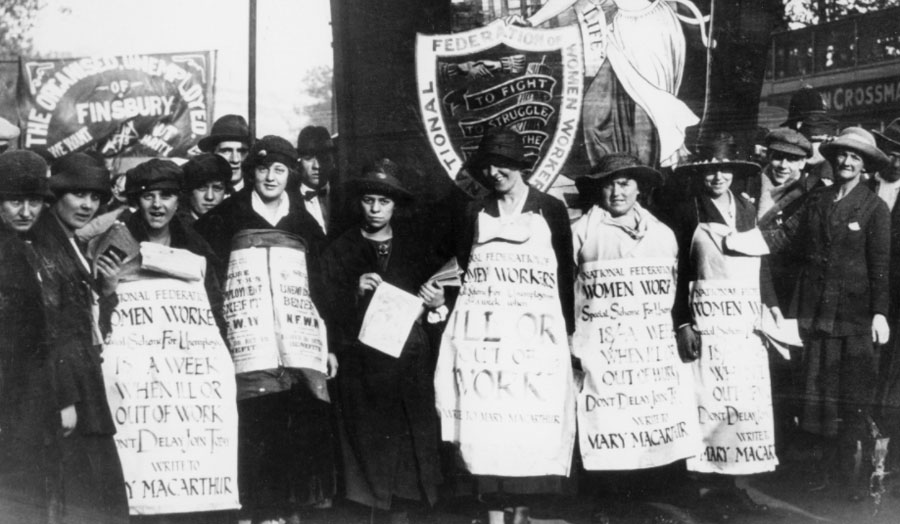The life and work of the pioneering female trade unionist are explored by the exhibition, with a rich variety of sources from London Met's TUC Library Collections.
Date: 18 January 2021
A new exhibition, primarily made up of materials from London Met's TUC Library Collections, celebrates the life of Mary Reid Macarthur, the Scottish founder and leader of the all-female trade union, the National Federation of Women Workers, who died 100 years ago.
The aims of the National Federation of Women Workers were to unite and strengthen small female unions, to organise women in some of the worst paid industries in the country and to give members the confidence to become and remain strong trade unionists.
As the exhibition notes, "It was a bold and ambitious experiment. By the end of its first year, it had a handful of branches across Britain from Edinburgh to London. By 1918 it had over 60,000 members. Never big, it nevertheless punched above its weight, taking on bosses, coordinating strike action and gaining important concessions for women workers. It became a force to be reckoned with, particularly during the First World War when the Government could not afford to ignore its representation of women munitions workers."
Since Macarthur's death, there have been more improvements in women's pay and conditions but history reminds us that many of the issues and challenges faced by the women organized by Macarthur – who were some of the worst paid workers in the country – remain as relevant today as they were then.
Jeff Howarth, Academic Liaison Librarian for TUC Library Collections, was one of the speakers at the launch event, alongside TUC General Secretary Frances O'Grady and curator and biographer Dr Cathy Hunt. Together they reflected on Macarthur's activism, explored the new exhibition and asked what her legacy means for women trade unionists today.
The exhibition features striking photos, copies of The Woman Worker, records of strikes by women workers, extracts of the Federation's newspaper established by Macarthur, Macarthur's election manifesto, and letters to her daughter, Nancy; as well as records of women trade unionists working to deliver better working conditions today.
The TUC Library is part of London Met's Special Collections at the Aldgate Campus and the Mary Macarthur archives, as well as many others relating to the history of women workers, will be available for staff and students to study once the pandemic is over and the reading room reopens.

"A trade union is like a bundle of sticks. The workers are bound together and have the strength of unity. No employer can do as he likes with them. They have the power of resistance. They can resist reductions in wages. They can ask for an advance without fear.
A worker who is not in a Union is like a single stick. She can easily be broken or bent to the will of her employer. She has not power to resist a reduction in wages. If she is fined she must pay without complaint. She dare not ask for a rise. If she does she will be told, "If you do not like it you can leave it". She will be told, "Your place is outside the gate – there are plenty to take your place".
An employer can do without one worker. He cannot do without all his workers. If all the workers united in a union – strong as the bundle of sticks – complain or ask for improved conditions, the employer is bound to listen."
- Mary Macarthur, The Woman Worker, September 1907
